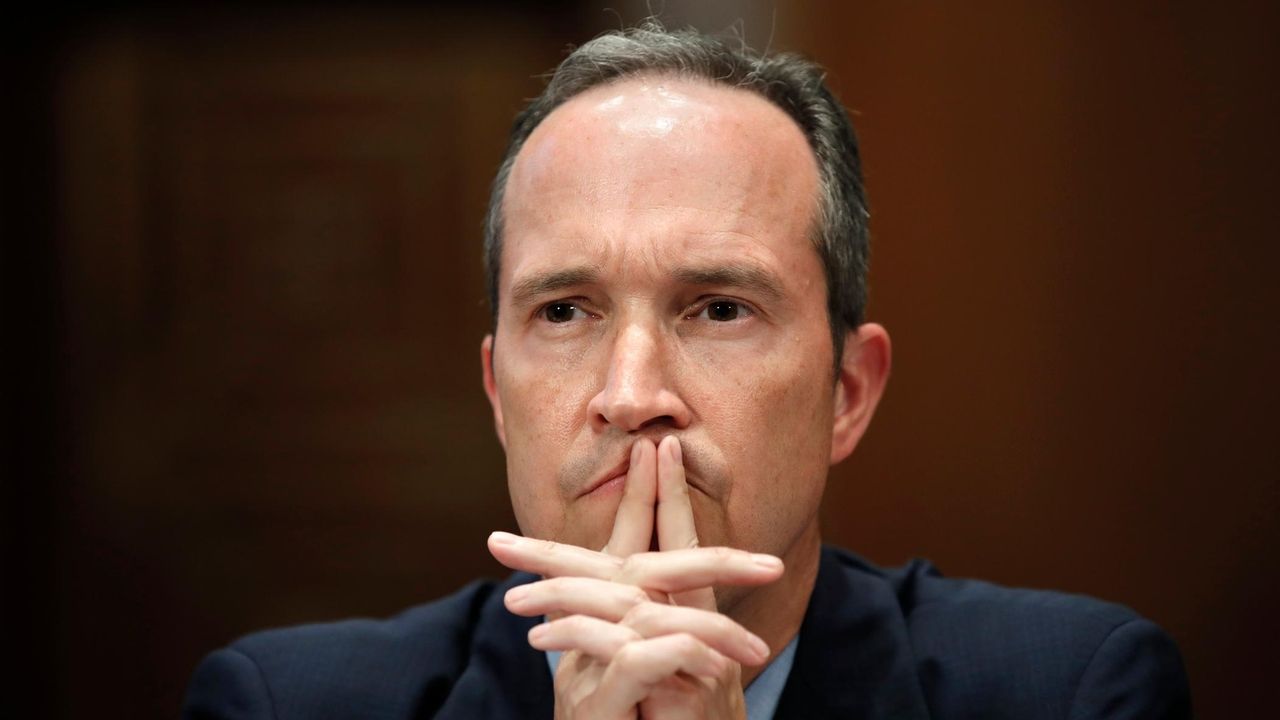Daily PointThe ‘late scratch’ is difficult in New York races
One of the most confounding problems in New York’s election law at this point in the campaign season has to do with a candidate or party trying to get the candidate’s name off a ballot in the final run-up to Election Day.
The three established ways of making the switch are: death, which is not a desirable option; or nomination to a judgeship, which involves party manipulations; or moving out of state, which can be very inconvenient, to say the least.
Much has been written about the prospect of anti-Zohran Mamdani campaigns colluding to stop the democratic socialist from being elected mayor in the fall. Mayor Eric Adams isn’t budging, ex-Gov. Andrew M. Cuomo is still running, and so is Republican nominee Curtis Sliwa.
Not that the three merging forces would necessarily do the trick; Democratic primary voters have chosen Mamdani, and the party is still dominant in the five boroughs.
But it’s key to note that Jim Walden, a lawyer, political unknown and declared candidate for mayor, wanted off the ballot this month but couldn’t pull it off. He might be considered the “oops-too-late” case of the season. He petitioned onto the ballot as an independent candidate but announced earlier this month that he wouldn’t be running after he and everyone else saw no path to his suddenly emerging and winning. He too opposed Mamdani, and Cuomo praised his announcement. But when Walden asked the New York City Board of Elections to be taken off the ballot, the board refused.
Walden argued that under the First Amendment he has the same right to not run as the Constitution allows him to run, New York election expert Jeff Wice recounted Monday. But Walden missed his deadline to step out, on May 30, which would have been before the party primaries. (Getting out of a primary nomination, another matter, has a deadline of the third day after it is held, and that was in June.)
The board, Wice said, was on “firm legal footing,” as a judge ruled. “Election Law deadlines are typically strict and unforgiving,” Wice wrote in the weekly newsletter of the New York Elections, Census, and Redistricting Institute.
One seasoned election lawyer, Martin Connor, told The Point that deadlines are imperative for boards to administer elections. For example, time is needed to print ballots and to send out absentee ballots. Also, public campaign finance officials are determined to not allow money to be released and spent on candidates who do not end up on the ballot and just may wish to collect funds and campaign to damage a rival.
If anyone in Albany is planning a legislative change to make sure that — say — a candidate who falls ill well into the season can voluntarily withdraw, it hasn’t gained traction yet. The last fix was made by the Democratic legislature in 2022 — specifically on Gov. Kathy Hochul’s behalf — so her indicted lieutenant governor, Brian Benjamin, could drop out of the party primary. Being accused of a felony or misdemeanor after the usual deadline is now a way off the ballot.
But the traditional options do offer some relief, attorneys say. Nassau County election lawyer John Ciampoli and others describe a loophole where the unwilling candidate gets slotted on a state judicial nomination with little chance of victory to remove the candidate. The out-of-town maneuver has worked when the candidate’s address and driver’s license were changed. “Anyone who says you can’t get off the ballot now has not read the case law,” he said.
It looks at a glance like a crazy system. After the Walden case, perhaps city or state officials will be taking another look. As the Benjamin case showed, things can be as flexible as lawmakers want them to be. But officials have argued over the years that hard deadlines prevent tricky last-minute maneuvers by politicos and parties. That’s the tension that could be faced in any reform — that the rules exist as they do for a reason, either good or bad.
— Dan Janison dan.janison@newsday.com
Pencil PointCentrally deficient
Credit: PoliticalCartoons.com / Ratt
For more cartoons, visit www.newsday.com/nationalcartoons
Quick PointsBring back the 8-track!
- Kids are sneaking iPods and cassette players into school to outfox the cellphone ban. The Point pines for the days of 8-tracks and boom boxes.
- Just in time for Halloween, New York created Frankie Focus, a giant green mascot who looks like a cross between Shrek and a regurgitated lime Slurpee, to champion the cellphone ban in schools. Nothing says “focus” like a cartoon mascot.
- Having a bad day? Probably not as bad as Giants left tackle James Hudson, who committed four penalties Sunday on the first drive against the Dallas Cowboys and was benched. Last year, Jets offensive lineman Joe Tippmann committed four penalties — in 17 games.
- The novel “Lord of the Flies” was first published 71 years ago this week. The staple of lit classes depicts English schoolboys shipwrecked on a desert island and surviving by creating their own brutal society. Here’s hoping the book remains fiction.
- Ultra-zillionaire Elon Musk was briefly deposed last week as the world’s richest person by Oracle’s Larry Ellison. In one day, Ellison’s worth rose $100 billion from stocks. Don’t worry about Musk, though. Hours later he was back on top as the richest person ever.
— Mark Nolan mark.nolan@newsday.com
Subscribe to The Point here and browse past editions of The Point here.
